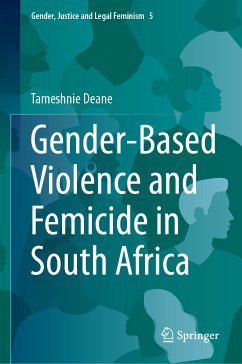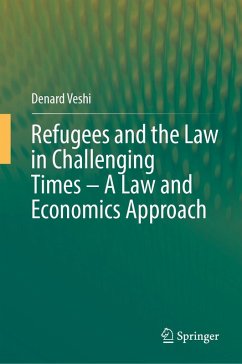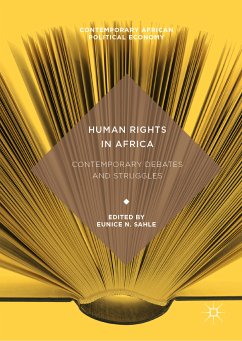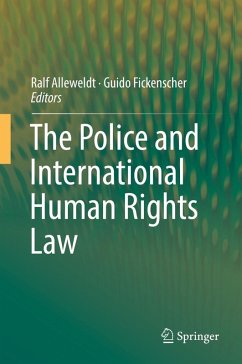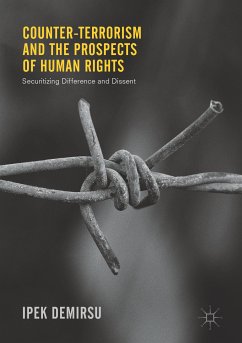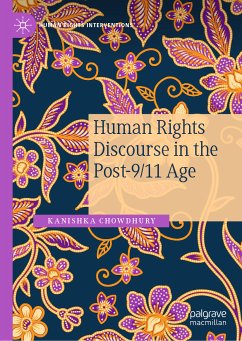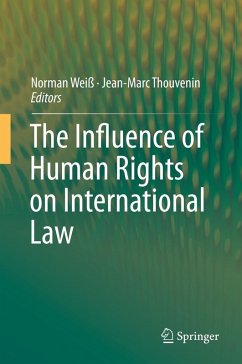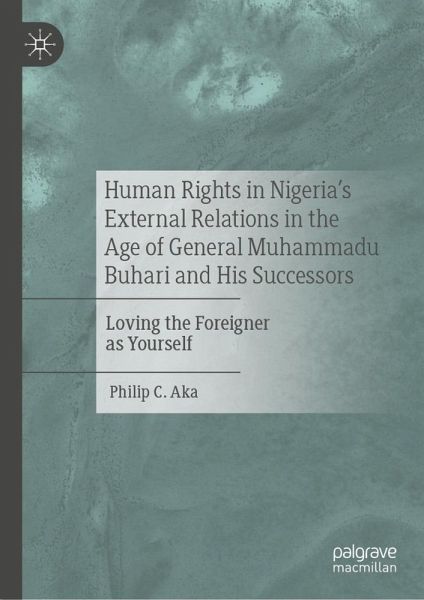
Human Rights in Nigeria's External Relations in the Age of General Muhammadu Buhari and His Successors (eBook, PDF)
Loving the Foreigner as Yourself
Versandkostenfrei!
Sofort per Download lieferbar
104,95 €
inkl. MwSt.
Weitere Ausgaben:

PAYBACK Punkte
52 °P sammeln!
Under the Fourth Republic since 1999, the challenge Nigerian leaders face like never before is how to create a state that matches the expectations of their diverse peoples at home and abroad. Taking this proposition as starting point, this book advances proposals for a human-right policy, referred to alternately in the work as principled foreign policy, for Nigeria under the Fourth Republic, taking advantage of the inestimable opportunity afforded by General Muhammadu Buhari's departure from the political scene on May 29, 2023, after the famine, domestically and externally, wrought by his two ...
Under the Fourth Republic since 1999, the challenge Nigerian leaders face like never before is how to create a state that matches the expectations of their diverse peoples at home and abroad. Taking this proposition as starting point, this book advances proposals for a human-right policy, referred to alternately in the work as principled foreign policy, for Nigeria under the Fourth Republic, taking advantage of the inestimable opportunity afforded by General Muhammadu Buhari's departure from the political scene on May 29, 2023, after the famine, domestically and externally, wrought by his two terms of office as President. It is a broad-ranging argument, draped in the less arcane constitutional vocabulary and material of human rights, for thoroughgoing reforms at home and abroad as the only antidote to the nation-building dilemmas Nigeria confronts in the first quarter of the twenty-first century. Buhari's departure marks the end of military teleguidance of Nigerian politics under the Fourth Republic in the camouflage of democratic rule, a birthmark of remote control dating back to the first military intervention in the country in January 1966.
These momentous events within Nigeria coincide with equally epoch-making developments in the UK, Nigeria's former colonial overlord, with ripple effects in Nigeria, signified by the death of Queen Elizabeth II, after seven decades on the throne, and the emergence of Prince Charles as King of England. A new monarch in Britain adds to the opportunity that falls open for the reconfiguration of Nigeria's external relations with ramifications for the application of human rights in those relations. Despite its known disabilities, Nigeria has the potential infrastructure, including its sizable population, to conduct a human-right policy, if its leaders rationalize the country's resources more wisely.
These momentous events within Nigeria coincide with equally epoch-making developments in the UK, Nigeria's former colonial overlord, with ripple effects in Nigeria, signified by the death of Queen Elizabeth II, after seven decades on the throne, and the emergence of Prince Charles as King of England. A new monarch in Britain adds to the opportunity that falls open for the reconfiguration of Nigeria's external relations with ramifications for the application of human rights in those relations. Despite its known disabilities, Nigeria has the potential infrastructure, including its sizable population, to conduct a human-right policy, if its leaders rationalize the country's resources more wisely.
Dieser Download kann aus rechtlichen Gründen nur mit Rechnungsadresse in A, B, BG, CY, CZ, D, DK, EW, E, FIN, F, GR, HR, H, IRL, I, LT, L, LR, M, NL, PL, P, R, S, SLO, SK ausgeliefert werden.



